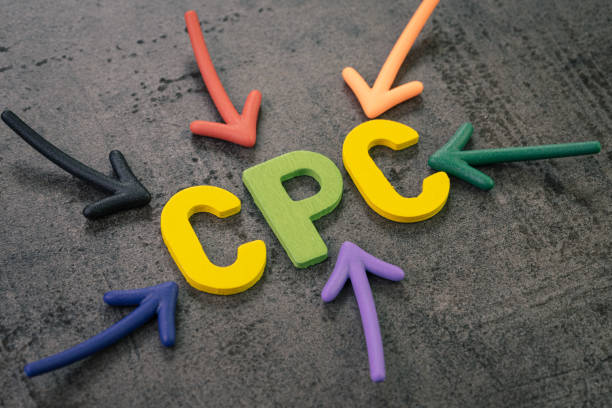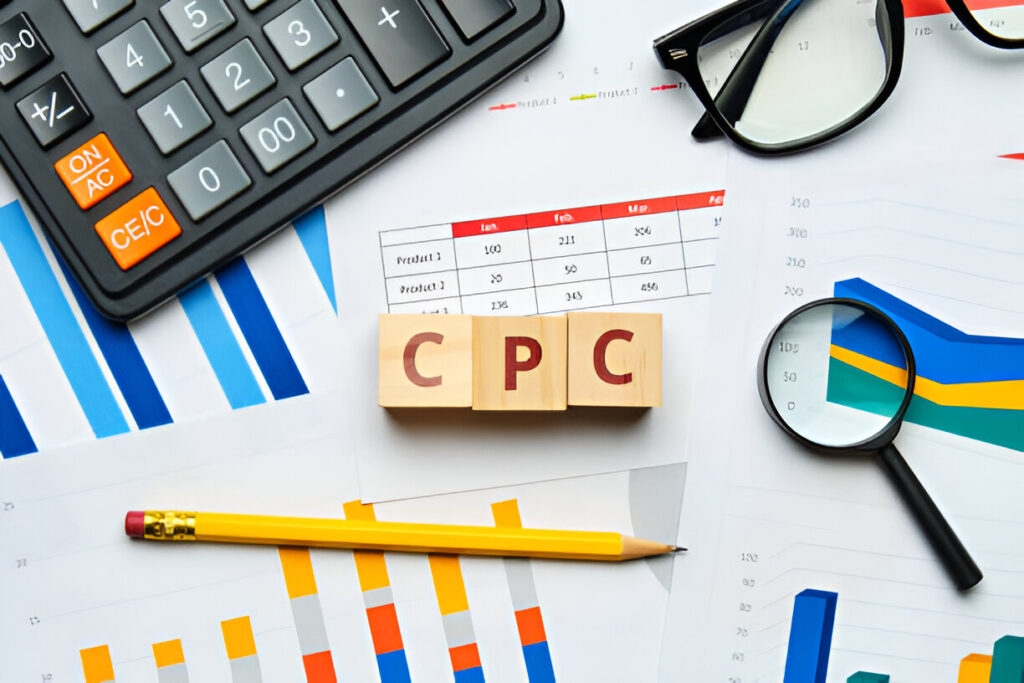Introduction
Here we learn about Google ads cost per click It’s one of the most powerful tools in digital marketing today, ranging from a small business to even large enterprises to run Google Ads campaigns, with the ultimate benefit of traffic and lead generation followed by increasing sales. Among various factors influencing successful campaigns, cost per click at Google Ads, or Google Ads CPC, tops the list. Understanding how CPC works, what influences it, and how to maximize it can help you spend your ad budget wisely and gain the best return on investment (ROI).

Table of Contents
What is Google Ads Cost Per Click (CPC)?
Google Ads Cost Per Click, therefore, refers to the cost each time a particular ad is clicked by a specific person. As a metric of pay-per-click advertising, cost per click directly determines whether campaigns are cost-effective or not. The CPC could be determined differently based on such factors as the level of keyword competition, which strategy one takes in their bid, and ad quality.
How Does Google Ads Cost Per Click Work?
When you are running a Google Ads campaign, the ad competes with other advertisers for the slot in search results. The ads are decided to be placed, and their pay-per-click values are determined based on an auction system employed by Google. Here are the elements considered during an auction:
- Maximum Bid: It is the amount you would want to pay for a click at maximum.
- Quality Score-A score calculated as a measure of ad relevance expected CTR, and landing page experience
- Ad Rank is a score given to the determination of where in search results to place the advertisement.
- Competition many advertisers are placing bids on a given keyword.
Factors That Affect Google Ads Cost Per Click
1. Keyword Competition
The more competitive the keyword, the higher the CPC.
Niche or long-tail keywords tend to have a lower CPC.

2. Industry Type
The finance law, and healthcare industries have a higher CPC because of the high competition level.
E-commerce and local businesses tend to have a lower CPC.
3. Bidding Strategy
Manual CPC – You set your bids manually for more control.
Automated Bidding – Google optimizes bids based on conversion goals.
Higher than average Quality Score = lower cost per click.
4. Quality Score
High-quality Scores lower CPCs.
Enhance ad relevance and landing page experience to improve the Quality Score.
5. Ad Position
Generally, top-position ads tend to have higher CPCs.
Positions below that could have lower CPCs but will not get the same amount of visibility.
6. Geographic Location
The same keyword in a different country can have a vastly different CPC depending on region, city, or even area of town.
Location targeting to highly valuable areas will increase CPCs.
7. Device Type
Mobile and desktop users have different CPCs.
Adjust your bids according to the performance of the devices.
How to Reduce Google Ads Cost Per Click
1. Apply Long-Tail Keywords
Competition is much lower and even lower CPC.
Long-tail keywords attract better-quality leads
2. Boost Your Quality Score
Write appropriate ad copy
Optimize the landing pages.
Make proper keyword use in ad copy
3. Refine Target Audience
Demographic targeting can help reach out to the targeted audience.
Prevents wasteful spending by removing unwanted audiences
4.Leverage Negative Keywords
Negative keywords will prevent wrong clicks.
Conserves budget as well as reduces wrong targeting
5. Optimizing Bids on Performance
Increase the bids for good-performing keywords.
Decrease the bids on underperforming keywords.
6. Ad Scheduling
Serve ads during the peak hours of conversion.
Don’t serve the ads when your audience is inactive.
7. Landing Page Optimization
Ensure quick loading speed.
Make the page mobile-friendly.
Ensure clear and compelling CTAs.
Common Mistakes That Inflate CPC
Ditching the following mistakes helps avoid unnecessary costs and makes campaigns more efficient:
- Not Using Negative Keywords – The budget is wasted on irrelevant searches.
- Broad Match Keywords Without Control – Unrelated searches are triggered.
- Low Quality Score – Higher CPC and poor ad placement.
- Not Optimizing for Mobile – Conversions are lower due to poor mobile experience.
- Not Tracking Performance – No data leads to wasteful ad spend.
Advanced Strategies to Increase CPC
As soon as your foundation is laid, these strategies will bring out the best in your Google Ad campaigns:
1. Dynamic Keyword Insertion
Insert a user’s search queries into the ads dynamically.
Higher ad relevance, CTR and more clicks and conversions
2. Geo Bid Adjustments
Increase the bid for areas converting well.
Bid less on regions that don’t perform
3. Device Bid Adjustments
Optimize ads for the best-converting device.
Decrease bids for weaker devices.
4. Ad Copy Testing
Run A/B tests to determine which ad variation is the most effective.
Optimize continuously based on results.
5. Retargeting Campaigns
Reach out to users who have previously visited your site.
Use display ads to remind them of your offer.
Conclusion
Understanding and optimizing Google Ads Cost Per Click is a wise step in successfully running PPC campaigns. By strategic bidding, refining targeting, and improving ad quality, you can cut CPC while maximizing conversations. Whether you’re new to Google Ads or trying to improve the performance of your existing campaigns, these best practices will help you get the most from your advertising budget. Optimize today, and start watching your business grow!





